Books
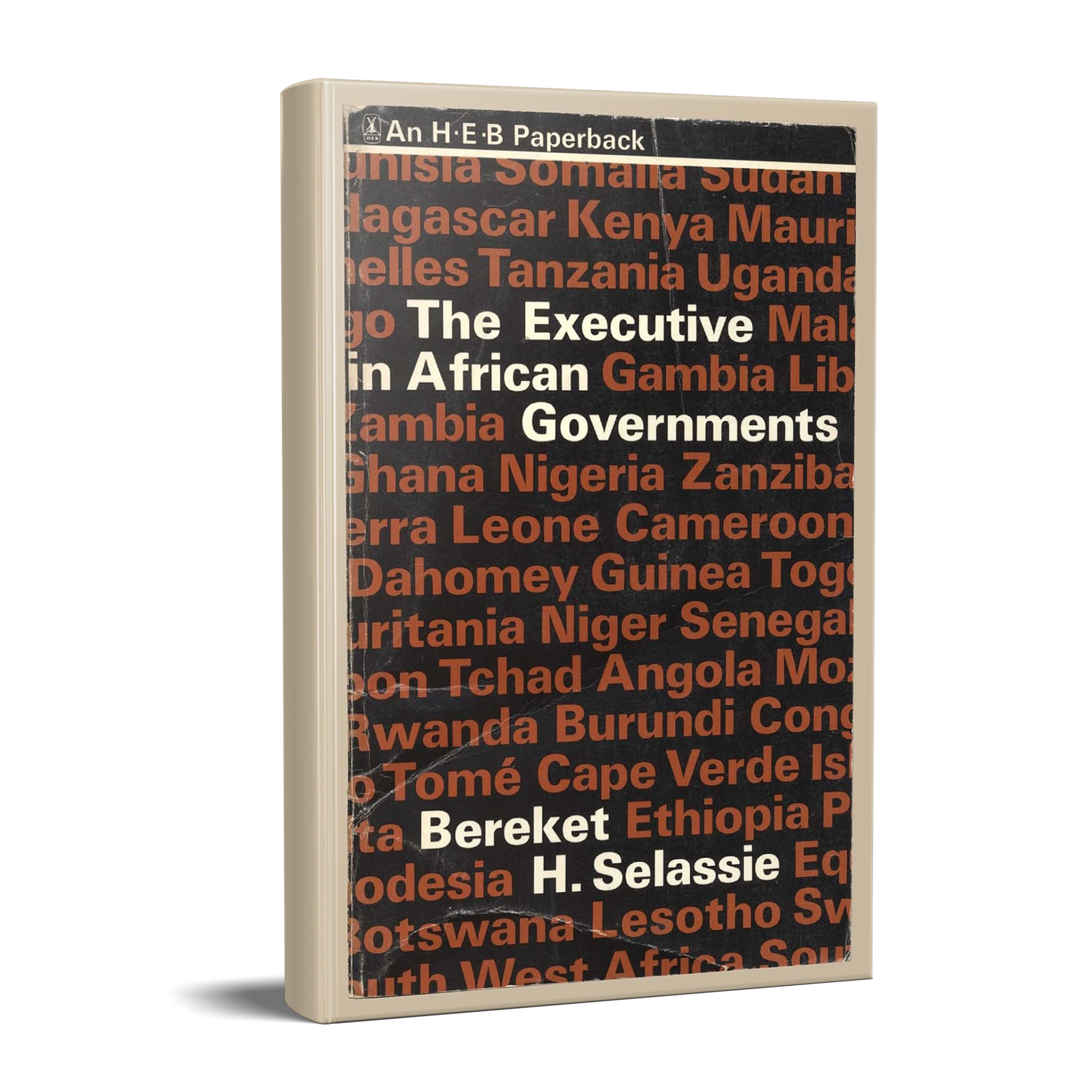
The executive in African governments
This book, which is the study conducted by Bereket Habte Selassie, is a collection of readings on African political thought for teaching an undergraduate course, edited by Gideon-Cyrus M. Mutiso and S. W. Rohio, lecturers in politics and government at the University of Nairobi. The editors state that the purpose of the work is to bring together materials on African political thought for teaching an undergraduate course, as this is the first such collection available. The readings have previously been scattered across various sources. The materials are organized to reflect the historical development of African politics, moving through cultural and plaintive nationalism, colonial imperialism, radical nationalism, pan-Africanism, and neo-colonialism, and finishing with ideological and integral nationalism and non-alignment.
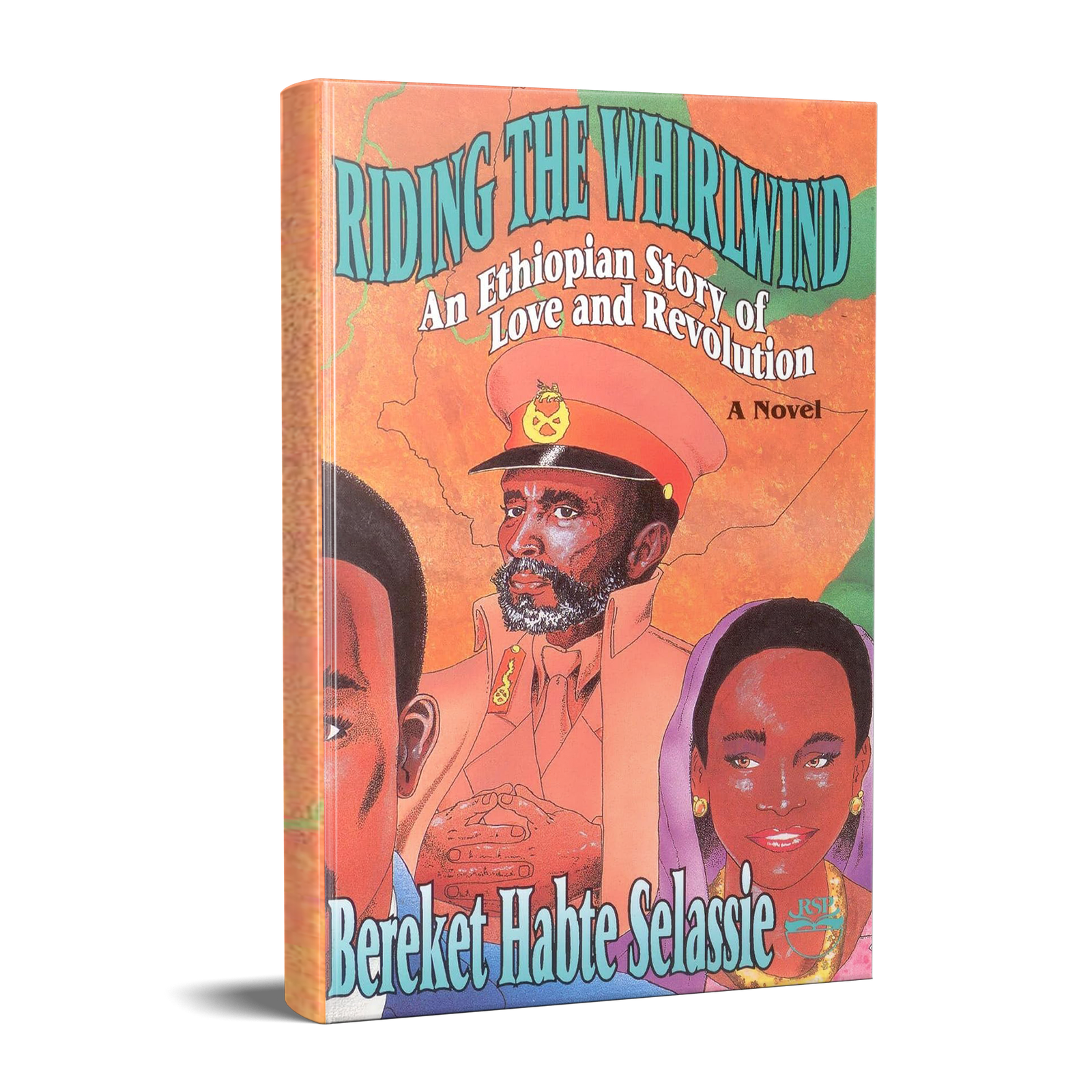
Riding the Whirlwind
An Ethiopian Story of Love and Revolution
A gripping historical novel of the Ethiopian revolution, full of intricacies and suspenseful drama. The main events of this novel occur in Ethiopia during the revolutionary period of 1969-1974, ending with the overthrow of Emperor Haile Selassie.
The chief protagonist, Desta, is a well-placed official of the Emperor’s government who is a close confidant of the Prime Minister and is at the same time a member of an underground revolutionary movement. He also has a complicated love life. The tension implicit in his dual roles between his private and public life gives Desta’s odyssey its peculiar quality against a fascinating social milieu and political drama. Indeed, Desta, the narrator/participant, has the ability to get the reader’s interest by maintaining a wonderful balance between his dual roles.
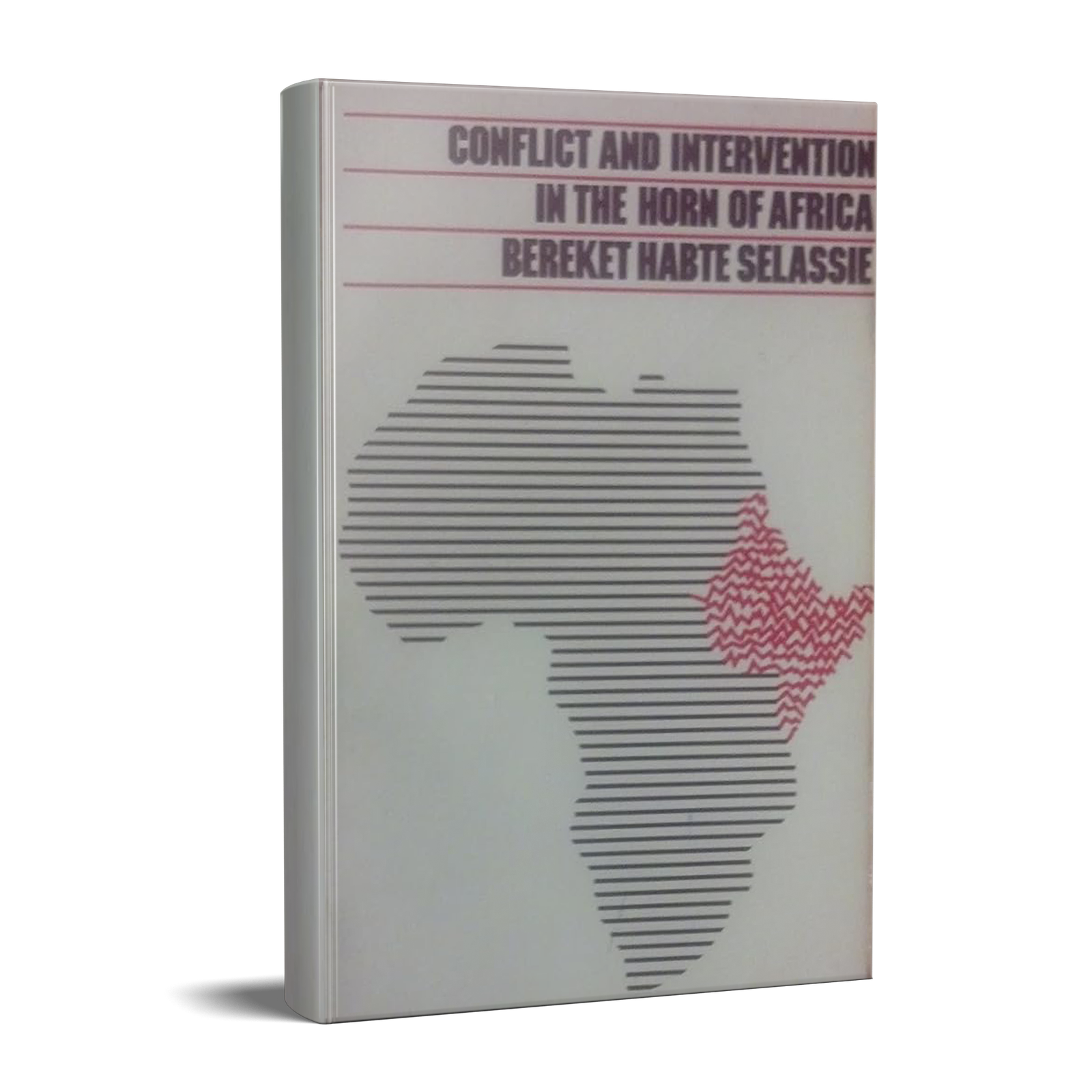

Critical Narratives and Reflections on Ethiopian History
“Critical Narratives and Reflections on Ethiopian History” is a book by Professor Bereket Habte Selassie, highlighting the importance of authentic historical accounts written by those who experienced or influenced history.
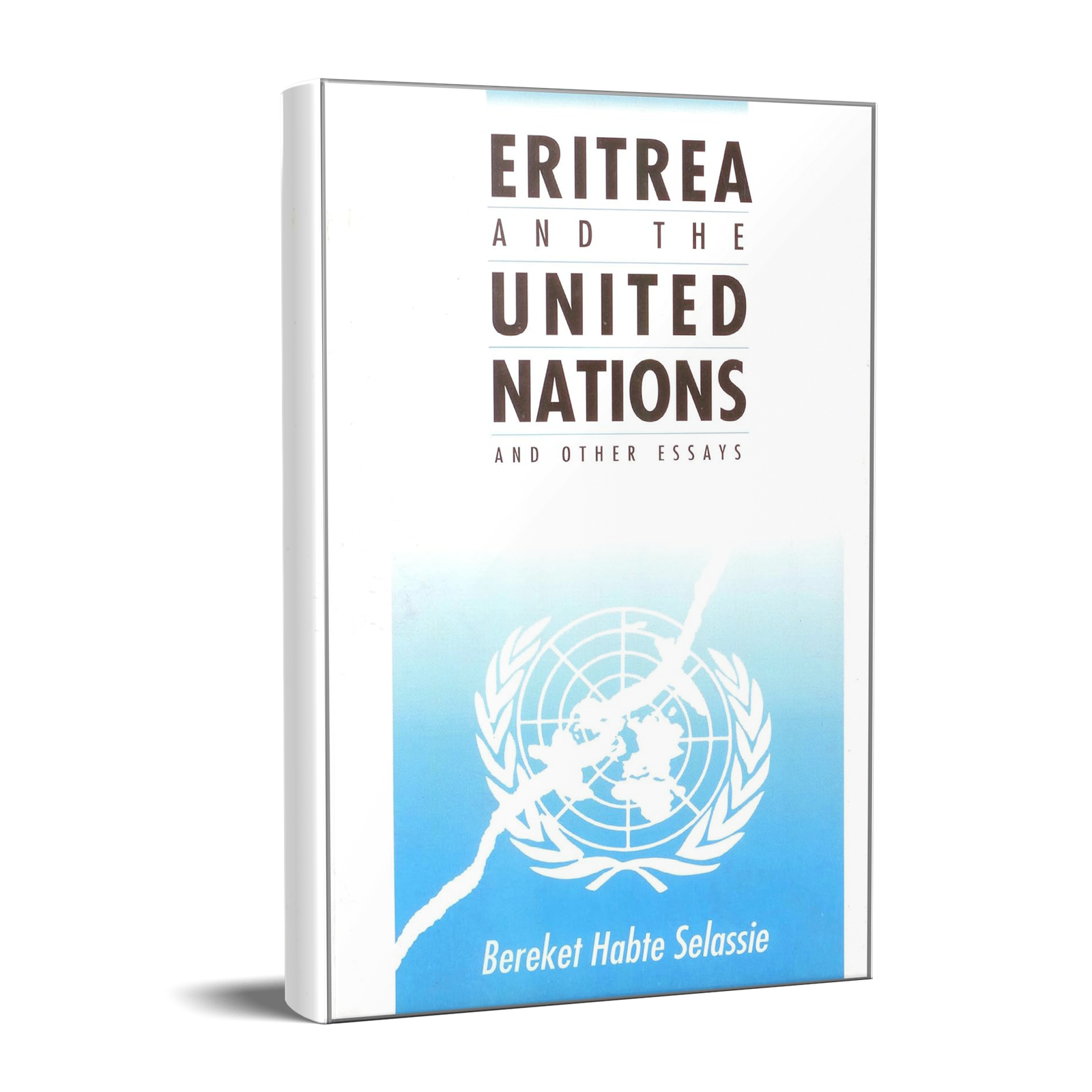
Eritrea and the United Nations and Other Essays
Bereket H. Selassie. Eritrea and the United Nations and Other Essays. Trenton, N.J.: Red Sea Press, 1989. xiii, 174 p.; 23 cm. Contents: International legal order then and now — Eritrea and the United Nations — Evolution of the principle of self-determination — The law of self-determination and the Eritrean case — The American dilemma on the Horn — The World bank: power and responsibility in historical perspective — The Eritrean war and prospects for peace in the Horn of Africa. [Eritrea — History — Revolution, 1962-1993. / Self-determination, National — Eritrea — History — 20th century. / United Nations.]
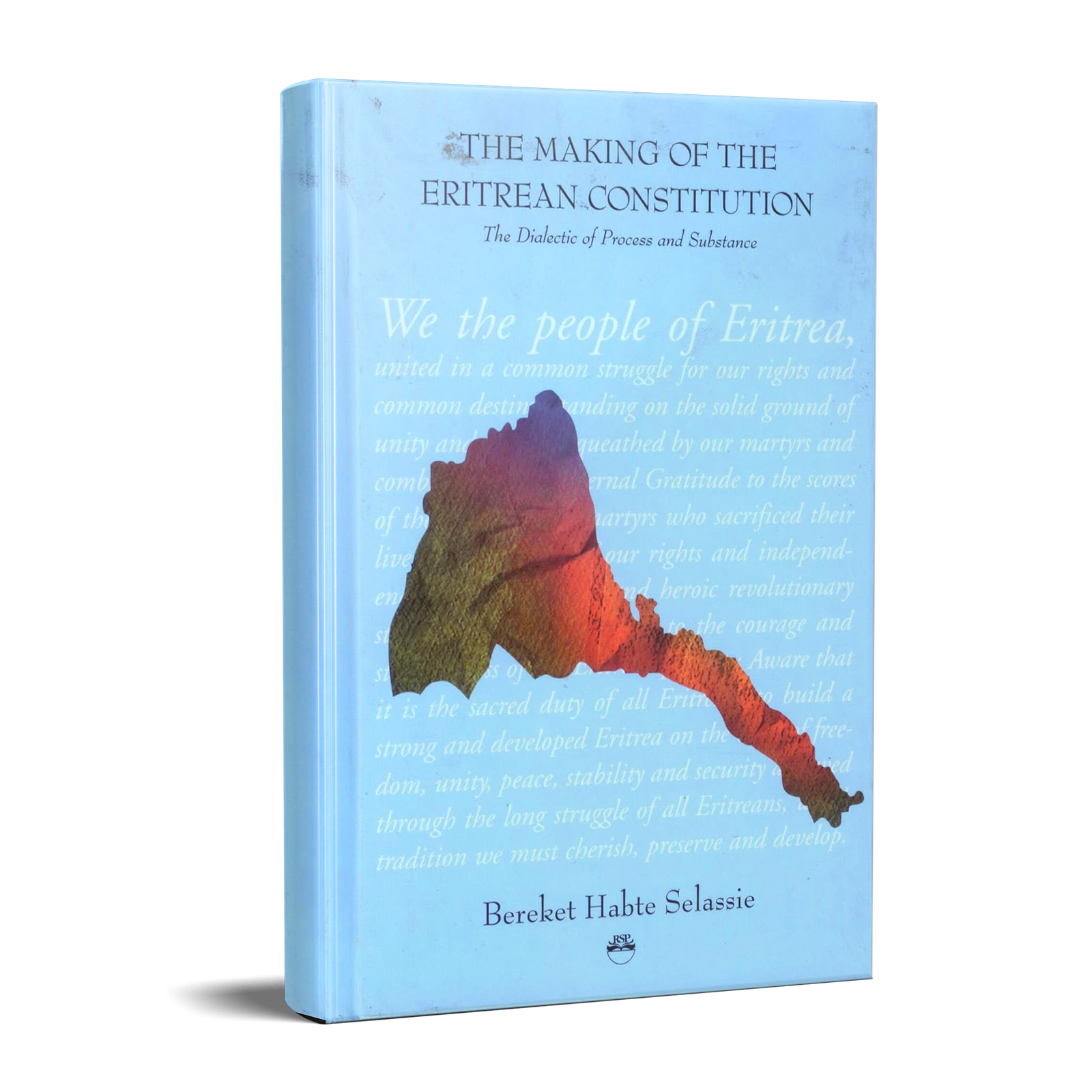
The Making of the Eritrean Constitution-
The Dialectic of Process and Substance
For the first time in their history, Eritreans were engaged, as a sovereign people, in the making of the basic document by which they would be governed. Regarded by Eritreans as the culmination of their legitimate struggle for national self determination, the Constitution became an integral part of this continuous and crucial struggle. Written by a scholar and practitioner who led the process of constitution drafting in the newly independent Eritrea from 1994 to 1997, this book analyzes the process from beginning to end, recording in concise summaries the intensive public debates held in village and town meetings during that three-year period. In his book, Bereket Habte Selassie identifies the constitution as a bulwark of a democratic system of government and defines a good constitution as one tested by the nature and degree of public participation in its making, hence his careful attention to the drafting process. In addition to describing the process of constitution making, he also uses chapter-to-chapter text analysis and commentaries to engage the reader in important discussions on the Eritrean constitution itself.
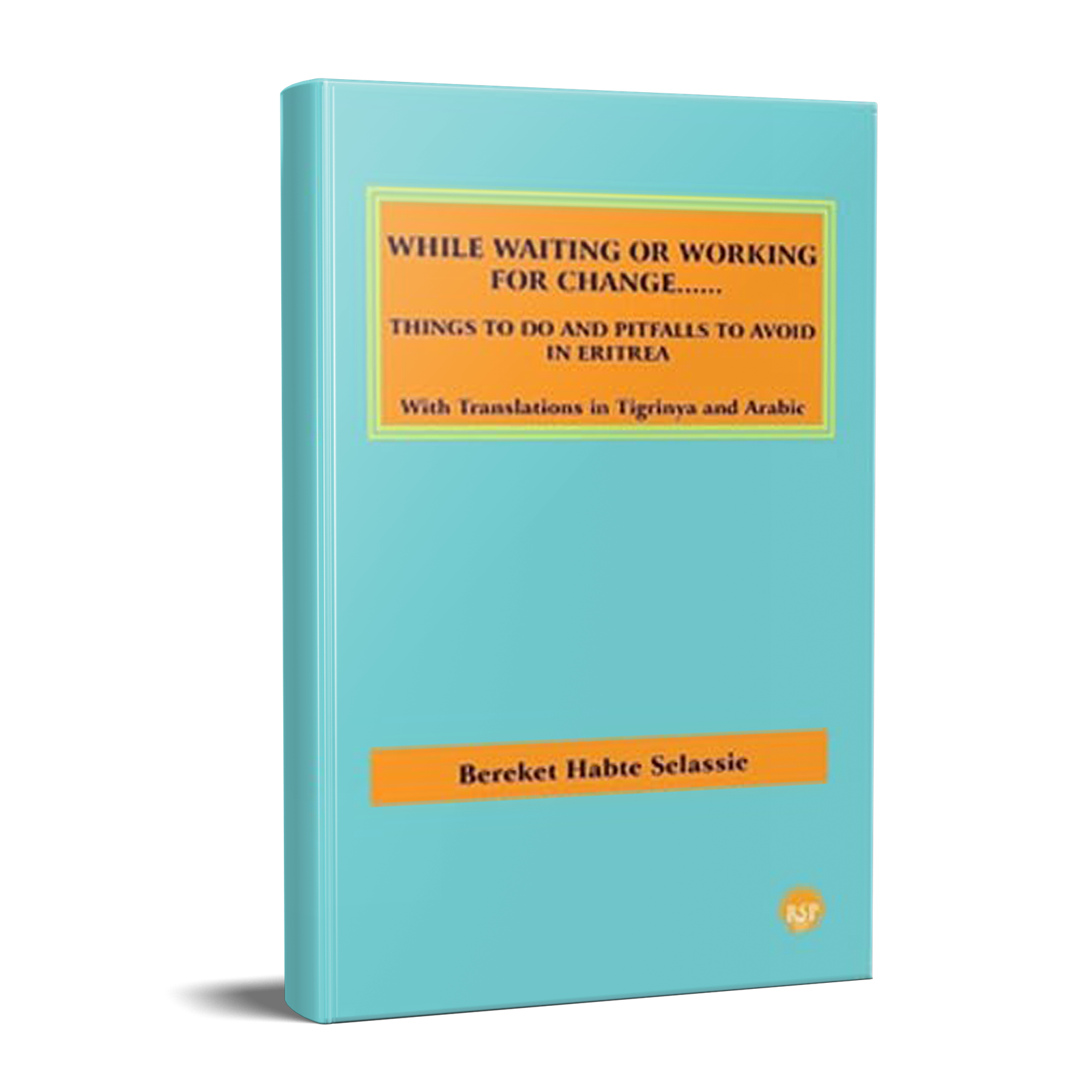
While Waiting or Working for Change
Things to Do and Pitfalls to Avoid in Eritrea
[In this book Dr. Bereket asks essential questions on the fate of Eritrea today…] “What is the role of civil societies and political parties? Should we pursue justice or peace and reconciliation? Is the role of the Diaspora to lead the movement or to support and encourage an Eritrea-based movement? Will we use the 1997 constitution as our basis for change or focus on constitutionalism? That is, Dr. Bereket is not offering a blueprint for change as much as crystallizing the choices and making an argument for debate—but only within the context of a united front, which he considers of paramount importance. Dr Bereket is saying, as Lenin did, we should step beyond “disunity, dissolution, and vacillation” and approach the existential threat Eritrea faces decisively.”
—Salah Younis (from the Foreword)
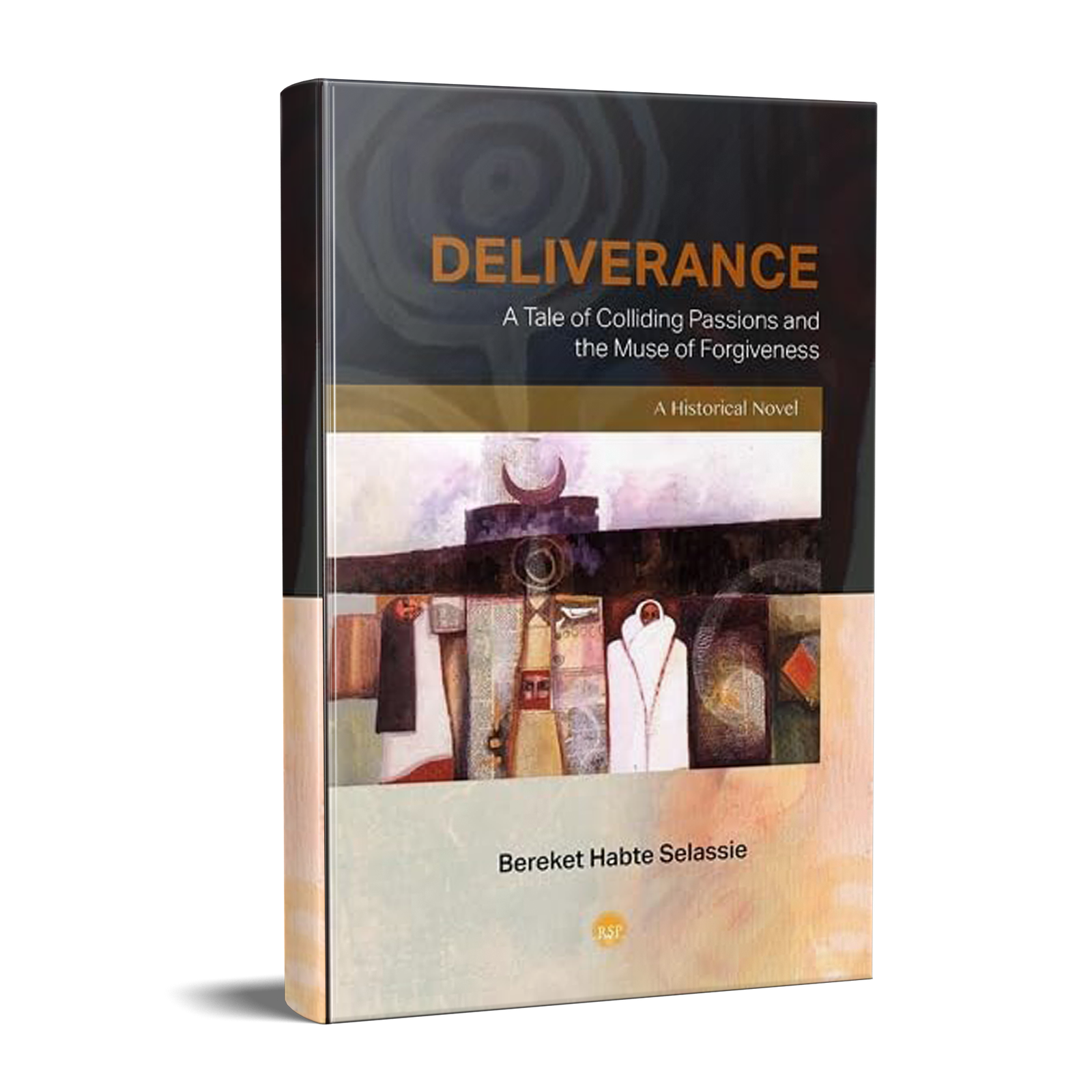
DELIVERANCE
A Tale of Colliding Passions and the Muse of Forgiveness, A Historical Novel,
This is a novel based on the recent history of Ethiopia and Eritrea. The principal characters of the novel are former participants in the revolution of the 1970s and 1980s, a period marked by a generation’s uprising against the prevailing order—feudal order in Ethiopia, and Ethiopian occupation of Eritrea.

Words that Govern and other Essays on Law and Politics
This book is a collection of essays that cover a range of topics on law and politics, culled from a long and rich experience of writing and continual participation in public affairs. The essays were, for the most part, delivered as key-note lectures given at international meetings in different venues in Africa, America and Europe. The lead essay crime and punishment in America is concerned with a persistently recurring social (and legal) problem in the United States that has eluded satisfactory resolution for generations.

DELIVERANCE
A Tale of Colliding Passions and the Muse of Forgiveness, A Historical Novel,
This is a novel based on the recent history of Ethiopia and Eritrea. The principal characters of the novel are former participants in the revolution of the 1970s and 1980s, a period marked by a generation’s uprising against the prevailing order—feudal order in Ethiopia, and Ethiopian occupation of Eritrea.
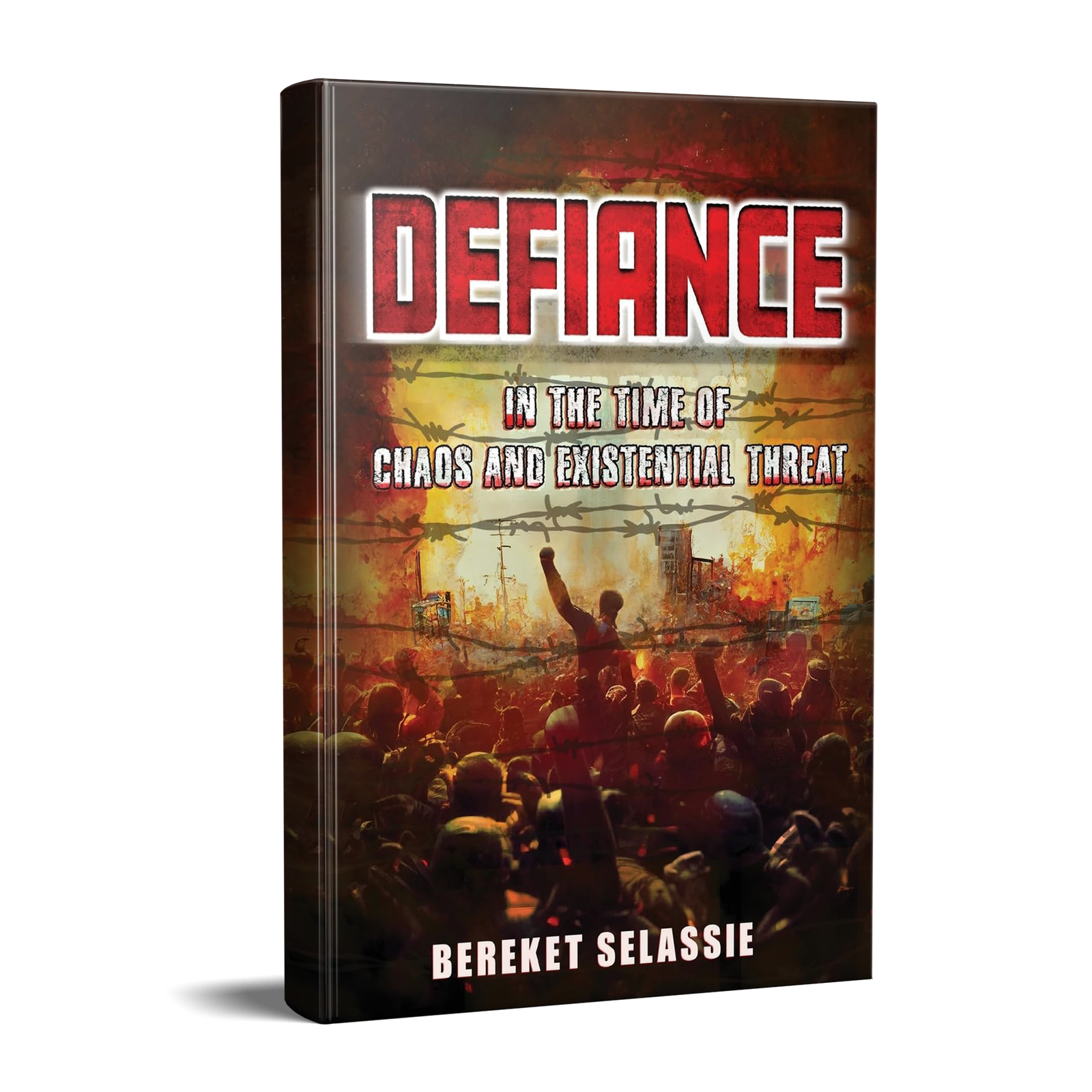
Defiance
In The Time of Chaos and Existential Threat
The book focuses on the critical and problematic global issue of mass migration.
It begins thus: “A time marked by chaos in government—widespread moral bankruptcy, corruption, and the threat of nuclear war—and the phenomenon of migration creating political and social problems, provoking conflict within and among nations.”
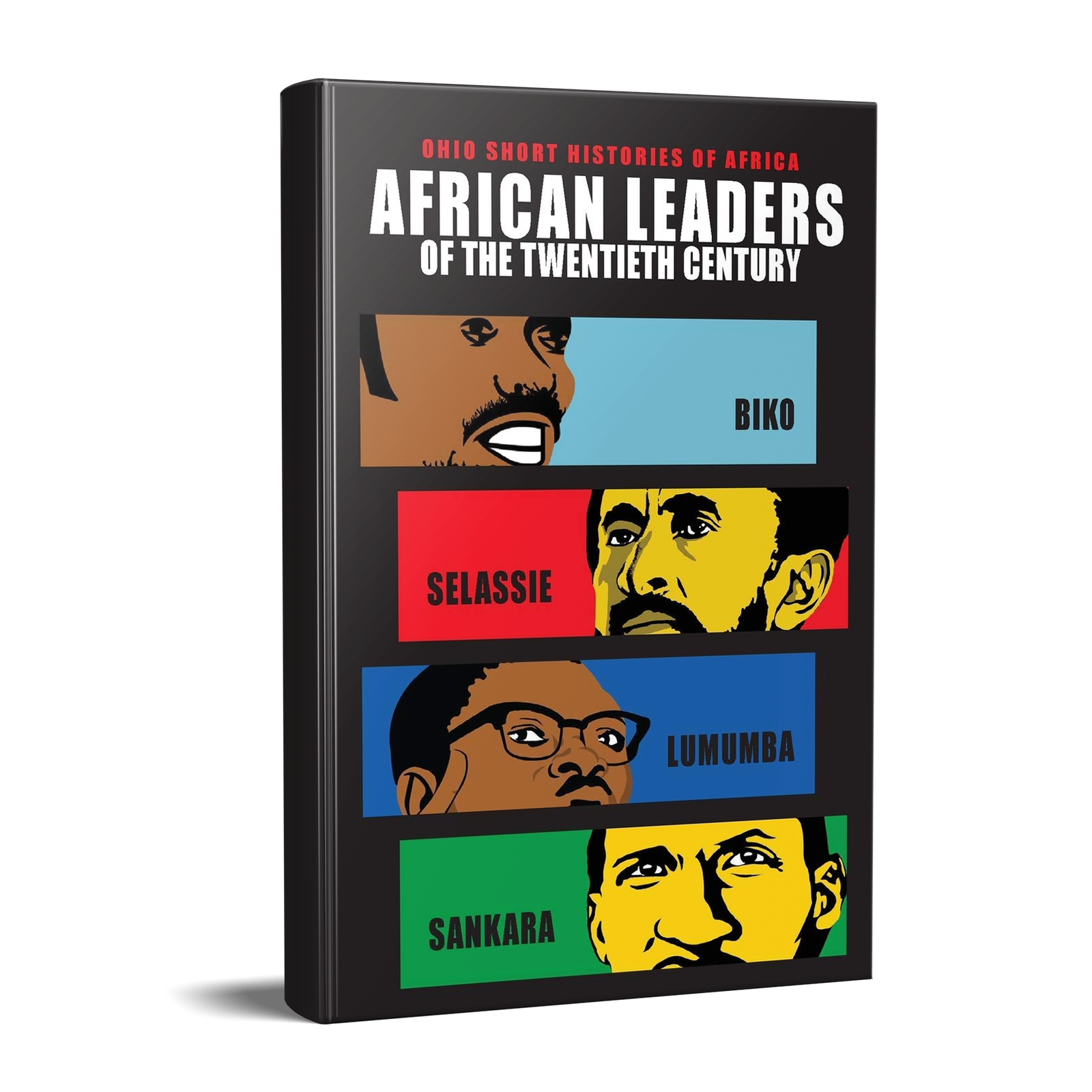
African Leaders of the Twentieth Century
Biko, Selassie, Lumumba, Sankara (Ohio Short Histories of Africa)
This omnibus edition brings together concise and up-to-date biographies of Steve Biko, Emperor Haile Selassie, Patrice Lumumba, and Thomas Sankara. African Leaders of the Twentieth Century will complement courses in history and political science and serve as a useful collection for the general reader. Steve Biko, by Lindy Wilson Steve Biko inspired a generation of black South Africans to claim their true identity and refuse to be a part of their own oppression. This short biography shows how fundamental he was to the reawakening and transformation of South Africa in the second half of the twentieth century and just how relevant he remains. Emperor Haile Selassie, by Bereket Habte Selassie Emperor Haile Selassie was an iconic figure of the twentieth century, a progressive monarch who ruled Ethiopia from 1916 to 1974. The fascinating story of the emperor¹s life is also the story of modern Ethiopia. Patrice Lumumba, by Georges Nzongola-Ntalaja Patrice Lumumba was a leader of the independence struggle in what is today the Democratic Republic of the Congo. Decades after his assassination, Lumumba remains one of the heroes of the twentieth-century African Independence movement. Thomas Sankara: An African Revolutionary, by Ernest Harsch Thomas Sankara, often called the African Che Guevara, was president of Burkina Faso, one of the poorest countries in Africa, until his assassination during the military coup that brought down his government. This is the first English-language book to tell the story of Sankara’s life and struggles.
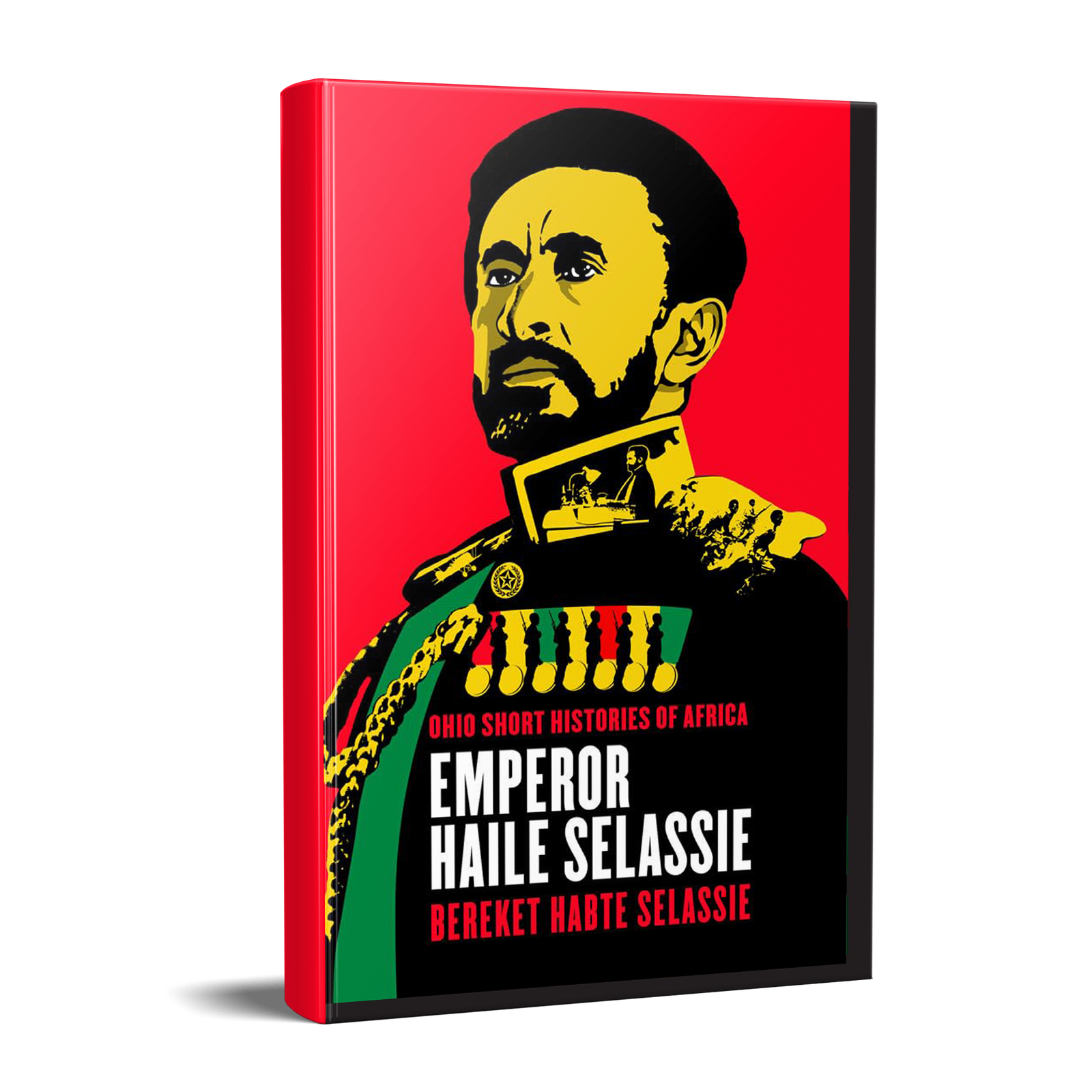
Emperor Haile Selassie (Ohio Short Histories of Africa)
Emperor Haile Selassie was an iconic figure of the twentieth century, a progressive monarch who ruled Ethiopia from 1916 to 1974. This book, written by a former state official who served in a number of important positions in Selassie’s government, tells both the story of the emperor’s life and the story of modern Ethiopia.
After a struggle for the throne in 1916, the young Selassie emerged first as regent and then as supreme leader of Ethiopia. Over the course of his nearly six-decade rule, the emperor abolished slavery, introduced constitutional reform, and expanded educational opportunity. The Italian invasion of Ethiopia in the 1930s led to a five-year exile in England, from which he returned in time to lead his country through World War II. Selassie was also instrumental in the founding of the Organization of African Unity in 1963, but he fell short of the ultimate goal of a promised democracy in Ethiopia. The corruption that grew under his absolute rule, as well as his seeming indifference to the famine that gripped Ethiopia in the 1970s, led finally to his overthrow by the armed forces that he had created.
Haile Selassie was an enlightened monarch in many ways, but also a man with flaws like any other. This short biography is a sensitive portrayal of Selassie as both emperor and man, by one who knew him well.
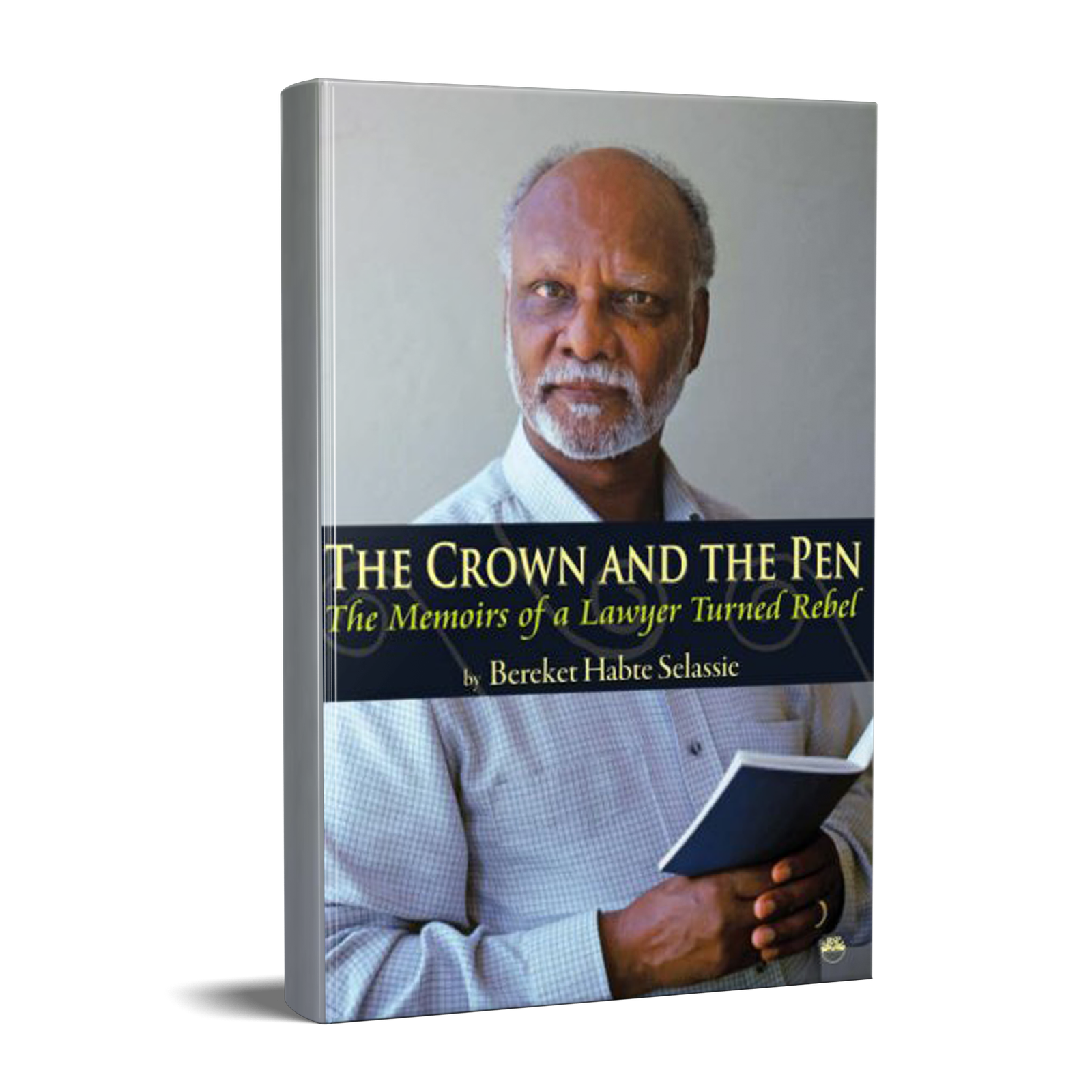
The Crown and The Devil in God's Land. An Eritrean Play the Pen. [Vol. 1]
The Memoirs of a Lawyer Turned
This memoir recounts the extraordinary story of a man straddling two worlds—a progressive lawyer and high-ranking official of the government of Emperor Haile Selassie who struggled for justice within an archaic system.
As Attorney General acting to advance progressive ideas in the context of an unreconstructed feudal society, the author was often involved in clashes. The fact that he is Eritrean further complicated his position. Eventually, he resigned and, after the overthrow of the Emperor in 1974, he joined the Eritrean freedom fighters.
It is also the story of a man who has been touched by and in turn made his share of influence in some of the major events and developments of Ethiopia, Eritrea and the rest of Africa as well.
A renowned academic, a pan-Africanist activist, a politician, an engaged revolutionary and a passionate nationalist, a lawyer and politician, Bereket Habte Selassie’s narrative is a mesmerizing read of events and people that have marked the last 50 years of African history.

The Devil in God's Land. An Eritrean Play
This is a Drama based on contemporary political realities in some African countries, which arrived at liberation through armed struggle. Eritrea (God’s land, according to the ancient Egyptians) is an example of a country and society in convulsion because of the abandonment by its leadership, particularly among the ex-combatants, of the lofty principles of democracy, serving the people, equality and solidarity: aspirations that characterized the rhetoric of the revolution. The incidences and personalities in it are, however, purely fictitious although similarities are bound to exist since the principles during the wars of liberation and the abuses thereafter tend to be the same in all undemocratic countries. Poetic license has been used to draw characters from the army, students, political dissidents and political opportunists, the Catholic Church and a nun who escapes rape but is martyred in the process of resistance.
This is a drama with elements of suspense, farce, comedy and tragedy, woven in a way that will not fail to move the reader in and outside Eritrea by the in-depth understanding of the inside workings and “intelligence” of a contemporary African dictatorship.
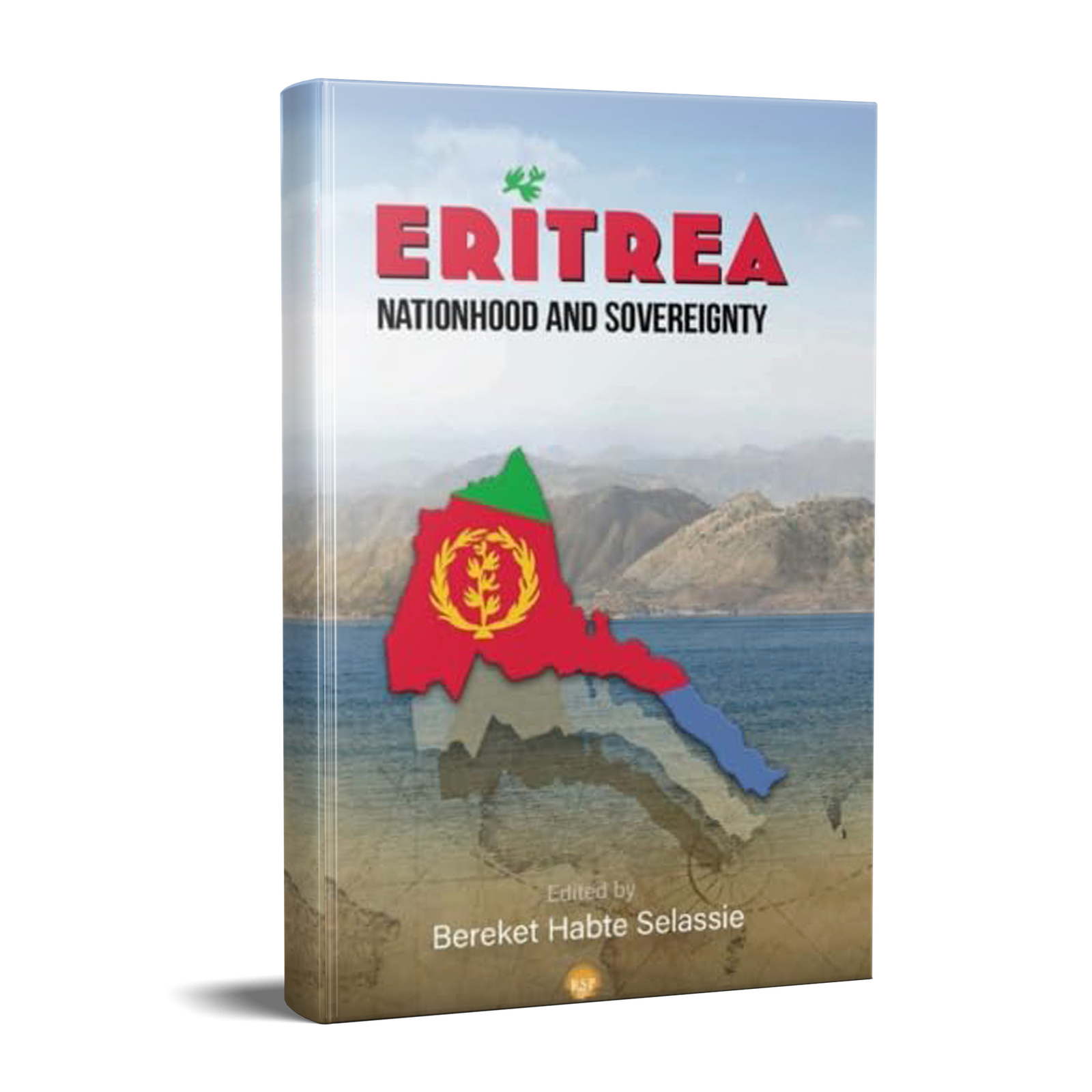
Eritrea
Nationhood and Sovereignty
The chapters contained in this volume explore the various political and social pillars that support Eritrean nationhood and sovereignty. These pillars of thought and action are a national imperative of which every Eritreans must be constantly reminded of. The contributors to this volume are waging an intellectual struggle, similar to the thirty years of guerrilla warfare that secured Eritrea’s independent statehood and sovereignty.
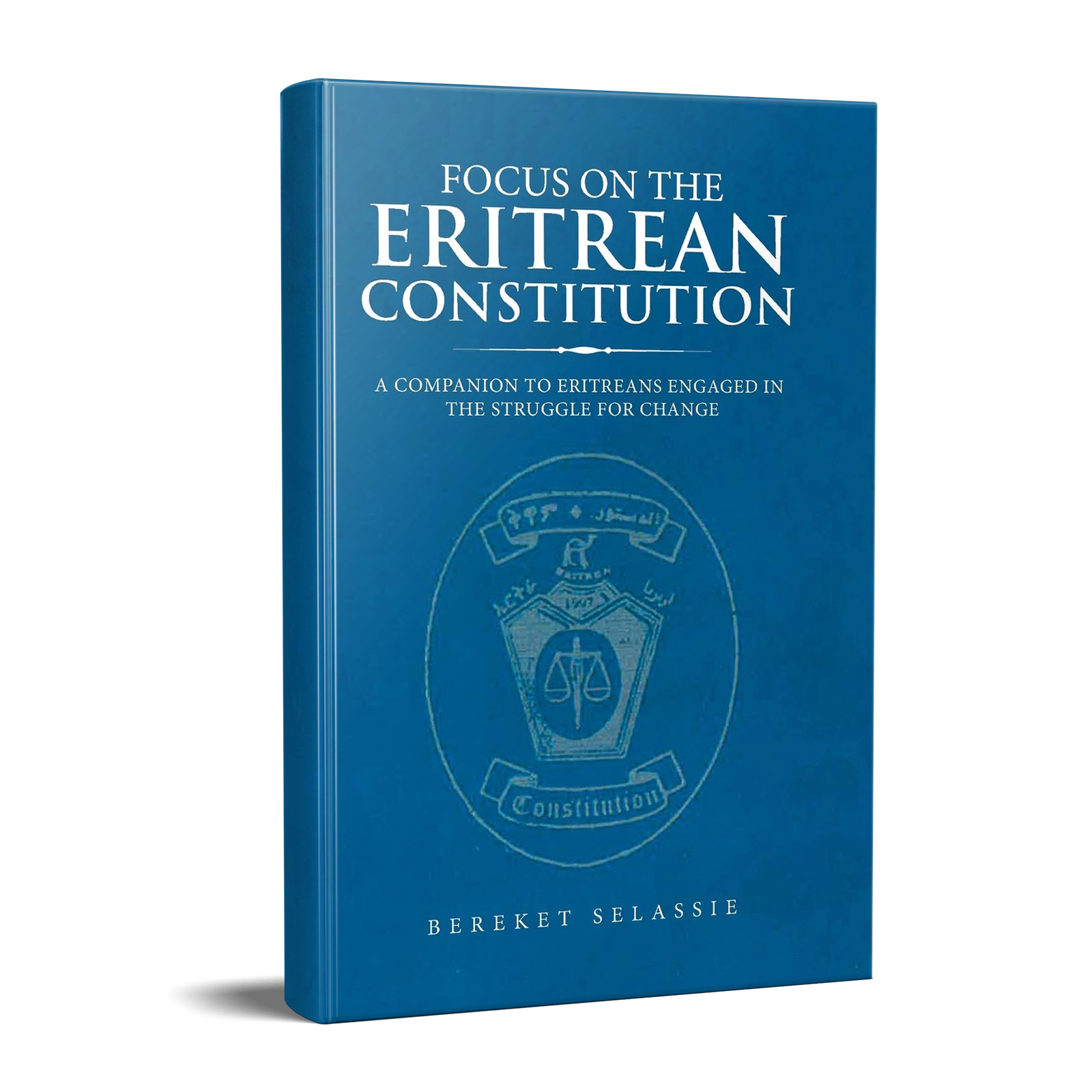
Focus on the Eritrean Constitution
A Companion to Eritreans Engaged in the Struggle for Change
Constitutional literacy requires its own “Literacy” Campaign, and schools and the Media need to embrace their obligation to play a role in this task.

Wounded Nation
How a Once Promising Eritrea Was Betrayed and Its Future Compromised (Crown and the Pen)
This volume takes up the life story of the author from where the first volume culminated. Through historical and political analyses the author lays bare the hidden (and not so hidden) elements that have contributed to Eritrea s descent from a stellar model of democracy and progress to a tragic abyss of dictatorship and isolation. The narrative is at once a historical and biographical testament of a man who had been part of the freedom fight as well as of a process of constitution making that had earned the admiration of a wide variety of observers and commentators. Combined together with the first volume, the book is a must read for students of the history and politics of Eritrea and the Horn of Africa region. The title itself is an indication of the central theme of the book providing a clue of the basis for Eritrea s current predicament. Trust is a fundamental ingredient in human relations. People place trust in the government they elect expecting it to perform its duties according to the promises it makes and pursuant to the law. But promises and laws are frequently broken, which raises the issue of responsibility. That is why there are legal and constitutional requirements for accountability and transparency.
The book’s title and subtitle are indicative of the bitter disappointment of the Eritrean public whose government of former freedom fighters broke its promises. A ratified constitution has been shelved and frozen for over thirteen years and the country has been governed by a one-man dictatorship contrary to all expectations, both domestic and international. In 1998, the country went through a devastating war with Ethiopia that took the lives of some one hundred thousand people. The two countries have yet to restore normal relations over a decade later. In Eritrea s case, the situation of no-peace-no-war has subjected hundreds of thousands of youth to an endless forced military service. This has led to a mass exodus of scores of thousands of them defecting to neighboring countries. This condition, together with the general dissatisfaction of the public has raised serious questions about the country’s future. This is one of the various salient issues discussed in this volume.




